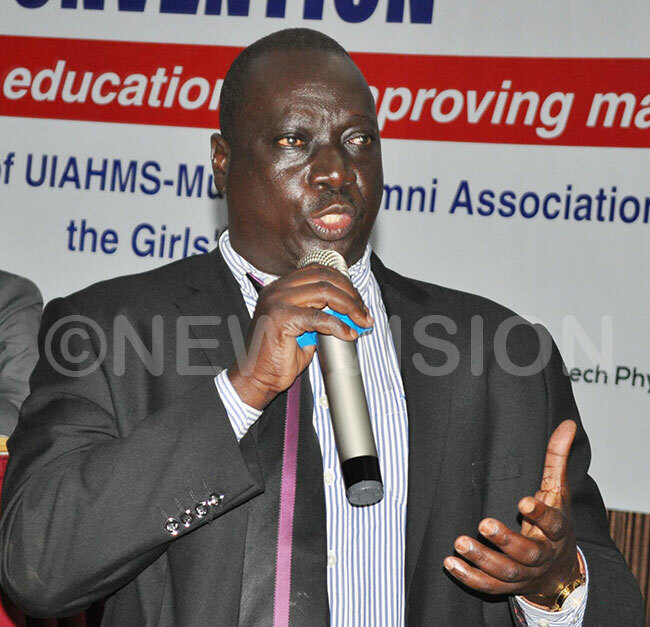Youth want specialised hospitals for victims of gender-based violence
Excerpts from the 2016 Annual Crime and Road Safety report indicate that 40,258 cases of VAWG related offences were investigated in 2016, compared to 38,651 in 2015.
VIOLENCE WOMEN YOUTH
KAMPALA - Young people have asked the government to set up a specialised hospital to manage victims of Gender-Based Violence (GBV).
The founder of Youth against Violence, Batah Nabatanzi said this will enable GBV victims to get timely medication and psychosocial support.
Speaking during the first Uganda Institute of Allied Health and Management Sciences-Mulago (UIAHMS) dinner at the Imperial Royale Hotel, Nabatanzi said, victims of GBV are not given much time and attention at referral hospitals as they are considered to be like any other patients. She added that health workers just treat what they see without attending to the root cause and after-effects are.
According to Police, districts of Kampala, Wakiso, Mukono, Iganga, Rakai, and Mbale recorded the highest cases of violence against women and girls (VAWG) in 2016.
Excerpts from the 2016 Annual Crime and Road Safety report indicate that 40,258 cases of VAWG related offences were investigated in 2016, compared to 38,651 in 2015.
 Batah Juliet Natabanzi, the founder of Youth against Violence speaking at the event
Batah Juliet Natabanzi, the founder of Youth against Violence speaking at the event
The report indicated that death as a result of domestic violence (163), defilement (17,567), rape (1,572), indecent assault (548), Incest (72), domestic violence-not deaths (10,744) and human trafficking (375).
Nabatanzi said: "If the specialised hospitals are not created, the country might register an increased number of patients with mental and reproductive health-related illness due to GBV."
Globally, it is estimated that one in three women have experienced either physical or sexual violence.
In 2018, the Ministry of Justice and Constitutional Affairs in conjunction with the Justice, Law and Order Sector (JLOS) with support from UNFPA conducted special court sessions on Sexual and Gender-Based Violence in 14 districts in Uganda, targeting to clear at least 1,000 cases of Sexual and Gender-Based Violence (SGBV) in 40 days.
 Prof. John Okiria, Chairman of Allied Medical Council speaking
Prof. John Okiria, Chairman of Allied Medical Council speaking
The sessions were a pilot in response to the urgent need to counter cases of Sexual and Gender-Based Violence offences, advance access to justice for survivors of SGBV, improve the experience of survivors in the justice system and reduce case backlogs of cases, some of which were dated as back as 2014.
The Allied Health Professionals Council (AHPC), John Okiria asked health workers to use their skills and competences to provide appropriate healthcare to those who need it.
"People come to health facilities to demand their right to healthcare; therefore, health workers have a mandate to provide this right. You're not helping any patient; they come to demand their right to care. So we the providers have a responsibility to do exactly that, that is why they say it is a calling,'' Okiria said.
Dr. Olive Sentumbwe, the Family Health and Population advisor at WHO appealed to health workers to offer quality healthcare adding that most of the deaths of mothers occur from health facilities.
 (L-R) Charles Twinomugisha, the Chairman UIAHMS, Alfred Otim the Principal UIAHMS and Dr Livingstone Makanga, Assistant Commissioner Reproductive and Infant Health at Ministry of health interacting
(L-R) Charles Twinomugisha, the Chairman UIAHMS, Alfred Otim the Principal UIAHMS and Dr Livingstone Makanga, Assistant Commissioner Reproductive and Infant Health at Ministry of health interacting